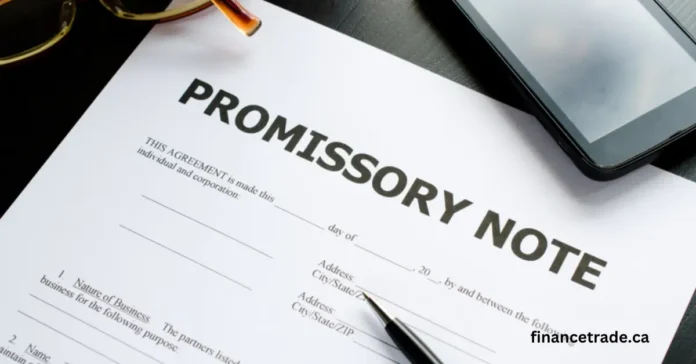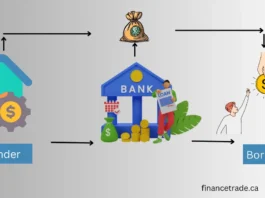Promissory notes are a powerful financial tool used by individuals and businesses to formalize loan agreements. But what if you hold a promissory note and want to sell it? Whether you need quick cash or want to remove the risk of default, selling a promissory note can be a profitable decision—if done correctly.
What is a Promissory Note?
A promissory note is a paper financial instrument detailing the promise by a borrower to pay a lender. It provides the loan amount, interest rate, repayment schedule, and maturity date. While IOUs are informal, a promissory note is a legal agreement that ensures lenders’ security.
These notes can be used for almost anything, from financing a business to housing transactions and personal loans. Promissory notes can be secured or unsecured and depend on what the borrower and lender agreed on.
Common Examples of a Promissory Note
Promissory notes are applied to various financial transactions. Some of the common examples include:
- Personal Loans: A friend or a family member lends money and demands legal assurance to get it.
- Business Loans: Small business owners acquire funding from investors through promissory notes.
- Real Estate Transactions: In a case where the seller finances the purchase of the property rather than a traditional mortgage, the promissory note applies.
- Student Loans: Some private student loans are secured by promissory notes that outline terms of repayment. How much Does a student loan lawyer cost?
These examples help clarify how promissory notes work in various financial situations.
How to Write a Promissory Note?
When drafting a promissory note, the terms and conditions must be clear and not ambiguous. There are the important elements to incorporate:
- Loan amount: The entire sum borrowed
- Interest rate: The percentage one is charged based on the amount borrowed
- Payment terms: Terms of payment by schedule and/or installments or lump sum payment
- Maturity date: the date when a loan is completely repaid.
- Collateral, if any: Assets that help secure the loan
- Default clause: Consequences in case a borrower fails to repay.
- Signatures: The note can only be enforced in a court of law if both parties sign it.
A well-written promissory note ensures clarity, protects both parties, and avoids future disputes.
How Does a Promissory Note Work?
A promissory note serves the function of a contract between a lender and the borrower. For instance:
- Issuance: The lender provides funds, and the borrower signs the note promising to repay.
- Interest Accrual: The loan accrues interest over time, as specified in the note.
- Repayments: Borrowers make periodic payments or a lump sum at maturity.
- Enforcement: If the borrower defaults, the lender can take legal action.
Whether secured or unsecured, a promissory note serves as proof of debt, making it easier for lenders to claim repayment.
Selling an Unsecured Promissory Note in AB
Selling an unsecured promissory note in Alberta (AB) can be challenging because these notes lack collateral, making them riskier for buyers. To improve your chances of selling:
- Be very documentary and present to the investors all the borrower creditworthiness details.
- Allow a competitive discount that may appeal to the investors.
- Although unsecured notes are riskier, they can sell if correctly structured.
What Factors Include in Promissory Notes
- Information of the borrower and lender
- The amount borrowed and loan interest.
- Repayment terms, together with a repayment schedule
- Both parties’ signatures
It can be drafted as a basic agreement or as a more formal document, depending on the complexity of the lending process. A demand promissory note allows the lender to demand full repayment at any time and not necessarily have a fixed repayment schedule. Such a note offers flexibility but can also be risky if the borrower cannot repay immediately.
Here is the table comparing promissory notes and bank loans:
| Feature | Promissory Note | Bank Loan |
| Flexibility | High | Lower |
| Collateral | Optional | Often Required |
| Approval Process | Quick | Lengthy |
| Interest Rates | Can be negotiated | Fixed by bank |
Promissory notes offer convenience but may carry higher risks compared to traditional bank loans. You can more learn about how to sell small business loans.
Advantages & Disadvantages of Promissory Notes
Advantages:
- It is easy to prepare and enforce.
- Loan repayment terms are flexible.
- An approval process is quicker compared to a bank loan application.
Disadvantages:
- Higher risk for lenders, especially for an unsecured note.
- Less protection under the law than traditional loans.
- Interest rates are relatively higher for the borrower.
Interest Rates on Promissory Notes
Interest rates on promissory notes are determined by:
- Loan amount and duration
- Borrower’s creditworthiness
- Market conditions
- Unsecured or high-risk notes might have higher interest rates.
What Should Entrepreneurs Know About Promissory Notes?
Entrepreneurs make use of promissory notes to obtain short-term funding.
Key takeaways
- Promissory notes should be used in short-term financing.
- Clear terms of repayment will avoid any disputes.
- Secured notes can attract investors.
- Business owners can gain access to funding and protect their financial interests by understanding promissory notes.
Conclusion
Selling a promissory note is a potentially profitable strategy; however, there must be prior planning. Know the types of promissory notes, their valuation factors, and legal matters before selling for a smooth experience. If you are selling an unsecured note in Alberta or want to maximize your value on a secured note-there are specific ways to proceed.
FAQs
Yes, but it may be harder to find buyers because of the increased risk.
Depending on the risk factors, the buyers will pay 10% to 40% less than the face value of the note.
Look for private investors, financial institutions, or note-buying companies.
While not required, legal counsel is significant to ensure a safe transfer.
Yes, payment history and borrower creditworthiness may play a significant role in negotiating.



